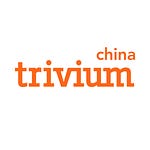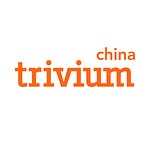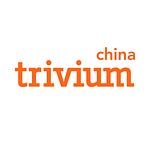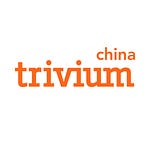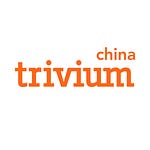In the latest episode of the Trivium China podcast, Trivium Co-founders Andrew Polk and Trey McArver discuss this week’s phone call between Xi Jinping and Donald Trump that appears to have gotten trade talks back on track, for now.
The two discuss:
The developments and misperceptions from both sides that almost derailed the Geneva truce over the past three weeks
What we know about the Xi-Trump call, and what needs to happen next to keep things on track
China’s perspective on its rare earth export controls – and how the slow-moving approval process is upending global manufacturing
Potential paths forward to a lasting agreement around US-China trade
The EU perspective on all this – and how US-China negotiations may leave Europe out in the cold
The upshot: US-China trade talks are in a much better place after the call than they were just a few days ago – but whether that will last is anyone’s guess.
Transcript:
00:00:07
Andrew Polk:
Hi, everybody, and welcome to the latest Trivium China Podcast, a proud member of the Sinica Podcast Network. I’m your host, Trivium Cofounder, Andrew Polk. And today, I am joined by my colleague, Trey McArver, who listeners of the pod will know well, dialing in from London. Trey, how’re you doing today?
00:00:22
Trey McArver:
Yeah. Doing well.
00:00:24
Andrew:
Glad to have you back. Perfect person on the pod to discuss all the latest. We are going to get into today the latest breaking news, just over the past couple of hours, which is that Xi Jinping and Donald Trump had a phone call to talk through the latest trade issues. There were clearly some misunderstandings around what exactly was agreed to between the two sides in Geneva.
00:00:47
So, we’ll talk through the implications of that last call or of this latest call. And then we’ll also kind of talk through what we think the misunderstandings are or were, and then maybe some prospects going forward. We talked about all this stuff last week as the U.S. was kind of hitting back against China out of frustration over rare earth element export controls, but it seems we kind of got some clarity on what the two sides were both thinking and why there was a misunderstanding heading over the past few days since our last pod. So, we’ll kind of lay that out and then just talk to the latest. Then we’ll also talk about the EU’s kind of role in all this and what they’re pushing China on the rare earth elements stuff. The podcast is, as we always say, meant to be about the main things happening inside China domestically. But this is a story we just can’t seem to get away from, so we’re going to stick on it while it’s the main theme of the week.
00:01:38
So, we’ll get into all of that. But before we do, I got to start off with the customary vibe check. Trey, how’s your vibe today?
00:01:45
Trey:
I don’t know how to answer that question. So, will say I don’t know. Not applicable. Undecided.
00:01:57
Andrew:
No vibe whatsoever.
Trey:
No vibe.
00:02:00
Andrew:
Well, that somehow is even worse than Kendra’s answer last week. I know Trey doesn’t listen to the pod, so he didn’t hear this, but Kendra, I caught her off guard with that question, and she said my vibe is vibrant and vibing. So, somehow, we keep getting worse and worse at this. But that’s okay. My vibe today is excited. Always glad to have Trey on the pod. I think this back and forth between the U.S. and China has been, interesting is the wrong word, but very fascinating to watch. And just to see, as I talked about last week, how the two sides are miscalculating and misunderstanding each other, I think, is important to talk through, and we’ll talk through that again.
00:02:39
So, I’m upbeat as usual. But before we kind of get into the meat of this stuff, a little bit of housekeeping up top. As usual, first, a quick reminder, we’re not just a podcast here. Trivium China is a strategic advisory firm that helps businesses and investors navigate the China policy landscape. That includes domestic policy in China across a range of issues, as well as China policy or policy towards China, excuse me, out of Western capitals like D.C., London, Brussels, and others. So, if you need help on that front, please reach out to us at hq@triviumchina.com. That’s hq@triviumchina.com. We’d love to have a conversation with you about how we can support your business or your fund to understand what’s happening in China and towards China.
00:03:21
Otherwise, if you’re interested in receiving more great Trivium content, check out our website. Again, that’s www.triviumchina.com, where we’ve got a bunch of different subscription options, both free and paid, as well as bespoke policy support options. So, you are definitely going to find whatever you need in terms of policy intelligence towards China on the site. Check that out. And finally, please do tell your friends and colleagues about Trivium and about the podcast. Helps us grow our listenership and our business. And while you’re at it, leave us a rating on iTunes or Spotify and subscribe to the pod. We’d love to have you as an ongoing listener. So, with that, I think we will get into it.
00:03:58
So, the big news, again, today, kind of as we were going to press, so to speak, on our daily notes, was that Xinhua reported that Xi Jinping and Donald Trump had talked. They basically just gave a one-line readout that said the two talked. Of course, Xinhua made sure to make it clear that Donald Trump had requested the call of Xi Jinping. So, this wasn’t Xi Jinping groveling. He was acquiescing to a call from-
00:04:23
Trey:
He was deigning to grant an audience with the U.S. president.
00:04:30
Andrew:
That’s right. By the time we sent our daily note, we had not gotten a readout. We have since then gotten a statement from Trump that I will get into in a minute. But I think, first, I want to quickly set the stage on why this call was so needed. There’s been rumors for the past few days that it was going to happen, and so it’s definitely a positive thing that it happened. And so a couple of things here before I get into this, one is we like to timestamp these so everybody knows what information we’re dealing with. This is 11:25 a.m. on June 5th when we were recording. Like I said, the call was just reported out, or the call just happened over the past few hours.
00:05:13
And the other thing is because, as we’ve seen in our last few pods, we’re reacting to news in real time. We’re, once again going, to keep it kind of loose. So, just kind of go through things as we can. Not a tight script here today, but I think we’ll get there. So, just quickly writing down where we were last week, so okay, first, May 12th, the two sides, U.S. and China, announced this agreement to de-escalate trade tensions from Geneva. That’s where the meeting was. The agreement entailed dramatically reducing tariffs on both sides so that at least the new tariffs from this year on China from the U.S. were 30%. China’s new tariffs from this year on the U.S. were 10%.
00:05:57
But as we said in the wake of that meeting, and over several podcast since, the more interesting thing potentially for us was this agreement by China to sort of “reduce non-tariff trade barriers.” And everyone saw that as rare earth element controls. And that, reportedly, as we understand it, was very much, the rare earth element export controls was very much what brought, a key thing that brought the U.S. to the table because they were seeing this as a big problem. And so the question was, what exactly does that mean? And over the two, three weeks, I guess now since the trade agreement or the de-escalation was announced, basically, as we understand it, the Chinese were seeing their part of that of upholding the agreement to start processing applications for these rare earth shipments from China to U.S. buyers. So, as part of the trade back and forth throughout April, China instituted export controls on seven rare earth elements that were put onto their dual-use export control list.
00:07:03
The upshot of that was that shipments of those goods started requiring licenses for any buyer anywhere in the world. so, that, in and of itself, was not necessarily trade retaliation. The retaliatory part was that MOFCOM, the Ministry of Commerce, who’s responsible for approving the licenses, was not even considering applications for licenses for sales to U.S. buyers. So, it was a shadow ban on sales to U.S. buyers, coupled with a wider spread element of control on shipments of all these goods globally. So, as part of the agreement in Geneva, the Chinese thinking was, okay, well, we will start accepting and reviewing licenses for sales to U.S. buyers. The problem with that is that because this is the new system, MOFCOM is hugely backlogged on processing these licenses.
00:07:56
As far as we know, just after the agreement, there were four licenses approved, all for non-U.S. companies or all for non-U.S. purchasers. And MOFCOM is kind of doing the ongoing work to review tons and tons of these licenses. They are understaffed. This is a new process. They, as we understand, are pulling, the bureau responsible for this is pulling people in from other bureaus of MOFCOM, trying to get these done as quickly as they can. For some detail, each of these applications is allowed to have 45 days for review. So, our understanding is that they’re actually sticking to the 45-day timeline. If you apply within 45 days, you get an up or down vote on your application, on your license application. But if we assume that, as of May 12th, they started considering applications from U.S. buyers or for sales to U.S. buyers, that means that the first licenses weren’t going to come through for 45 days.
00:08:56
But, like I said, we’ve had conversations. We understand that they did start at least considering reviewing those applications. The problem is that not only is the slow roll, or not really slow roll, but the slow execution of these reviews causing disruptions for sales of specifically rare-earth magnets to companies all around the world, and especially automakers around the world, and especially in Europe, are getting really nervous about this because it’s about to really start impacting their production. Everyone has been disrupted by this. The U.S. is increasingly seeing disruptions coming down the pike. But the U.S. side basically thought they were going to get licenses very quickly, and that the rare earth elements in the magnets would start being shipped to them very quickly. And the Chinese side, as far as we can tell, they thought, okay, we’re starting the review process.
00:09:46
So, by definition almost, it was going to be probably 45 days until we saw any approvals and shipments started going to the U.S. Well, as of last week, the Trump team was very frustrated by this. I think there was a misunderstanding. Our assumption is that the Trump team thought that the agreement in Geneva was that China would totally remove the requirement for licenses for export controls. And that was never going to happen because China has instituted these globally. And they understand it’s one of their best pieces of leverage in U.S.-China trade talks and trade negotiations generally with other countries. We’ve gone over this on the pod before with Cory, so I won’t get too much into it. But they are not going to remove the requirement for licenses.
00:10:34
So, the U.S. probably thought that’s what they were going to do, as it became clear that wasn’t going to happen, and they weren’t getting licenses approved very quickly, the U.S. started to think, well, China is in contravention of our Geneva agreement. And so last week we saw a spate of retaliatory moves from the Trump administration, which reportedly was clearly frustrated about this. Those included restrictions on exports of jet engines to China so that their main aerospace manufacturer, COMAC, could not produce their domestic C919 airplane. It also included restrictions on sales of electronic design automation equipment, which is very important to making semiconductors, which also was a big move. And, reportedly, even the “aggressive move to revoke Chinese student visas in the U.S.” was also retaliatory move.
00:11:24
So, from the U.S. side, China was not living up to its agreement. From the Chinese side, they were saying, “We are doing it. It’s just taking time.” This caused a huge amount of confusion by both sides. Both sides realized, okay, we need the big leaders on both sides to talk this out and come to an understanding. So, that’s kind of where we are and that’s what led up to this call. Tons of confusion around what China was doing, what China’s expectations were, what the U.S. was doing, why it was retaliating, what its expectations were, which all led us up to this moment. That’s kind of long explanation, but I think it’s important to set that background. Trey, any kind of reactions to the kind of chaos over the past week and a half that we’ve seen over the misunderstandings between each side before we get into the call between Trump and China or Trump and Xi Jinping today?
00:12:13
Trey:
Yeah. I mean, I think I’ll just add a couple quick points, which is that I think, you know, you’ll remember right after we had the Geneva talks, I mean, I feel like it was like the next day, the U.S. Commerce Bureau of Industry and Security released the updated regulations on chip export controls, which basically said that any company anywhere in the world, including Chinese companies using Huawei chips, would be in violation of U.S. export controls. I mean, I think that was seen as a bad faith move by the United States and China from the get-go. I also think the Geneva detente was kind of poisoned from the outset. At the same time, I mean, I actually think the U.S. has tons of reasons to be frustrated in that even if they did misunderstand what China was actually agreeing to in Geneva.
00:13:11
So, I do think, as you said, that this is in fact ultimately a misunderstanding. I do think there would be scope for China to temporarily suspend the licenses or expedite approvals as they get this system in place. I mean, I think kind of bureaucratic incompetency is also something that I would find very frustrating if I was sitting across the table and trying to understand why my country’s buyers were not getting approval to buy these things. I think there’s been a lot of distrust on both sides. I think that distrust, in part, comes from misunderstandings. But then those misunderstandings lead to actions that I think would legitimately make the other side not trust the other. And that is why this call was so important because it, hopefully, will put a stop to that kind of cycle of retaliations and misunderstandings and kind of reset things.
00:14:16
So, I think it’s hard to really exaggerate how important this phone call is. And, frankly, I’m really surprised that it happened. For me, this is definitely an upside surprise. So excited to kind of get into the call itself and why it’s such good news.
00:14:33
Andrew:
Totally. And I will say a couple things. One is I don’t know that I’d characterize the détente, or whatever agreement everyone characterize in Geneva, as poison from the outset. But it was half-baked in my mind. Right? Both sides kind of wanted to get some positive momentum. And so they agreed to, especially on the non-tariff stuff, language that was totally unclear, and clearly did not align expectations. And so I think it was, if not poisoned, it was certainly set up for failure — put it that way. Second big piece is that, as you said, from literally days after that announcement from Geneva, both sides were already accusing each other of basically not upholding the agreement. And as you said, the Chinese side, within one week, I think it was the Monday. so would have been Monday the 17th, the 12th is when the agreement was made, or on the 19th, sorry.
00:15:30
China came out and said, “Well, this Huawei guideline could blow up the trade talks.” Right? And so there’s been a question actually on both sides, which we can get into a little bit, as to whether both sides were just trying to build leverage in the negotiations and just saying things and posturing and retaliating so that the other side would feel pressure. And we thought that might be the case for a while. Or maybe we thought, from the U.S. side, it was just miscommunication, like the Commerce Department not coordinating with the State or the Treasury Department on the negotiations. But that was not the case. It was just both sides were pissed, and both sides truly thought that the other was not doing what it said it would do.
00:16:09
And finally, to your last point, on the upside, I mean, I wrote a piece this weekend that was like the Geneva agreement is disintegrating before our eyes, right? I thought this thing was just going south and going south fast because both sides, again, were thinking different things. I don’t know how quickly China feels like it actually can approve these licenses. I always thought just the timing was going to screw things up, and I just didn’t see the U.S. as being willing to wait the 45 days, even if they understood that that was the reality. And so I expected them to continue retaliating. And ultimately, I expected China to be like, “Well, fine, we’re not going to approve these licenses after all.”
00:16:48
So, it just looked like it was on a real downward spiral. But fast forward to today, and we do get this good news. And now I’m going to read from the statement by Trump. Trey, you sent me this. Is this statement officially from the White House? Is this a social media post?
Trey:
Truth Social.
00:17:04
Andrew:
Truth Social. Okay. So, social media post. So, everybody is unclear whether that’s an official-
00:17:08
Trey:
From the man himself.
00:17:09:13
Andrew:
Yes. So, it’s from the man himself. Everyone, as usual, is unclear whether it’s an official pronouncement or not. But I think this is very good. So, I’m just going to read the whole thing, Trump says on Truth Social — “I just concluded a very good phone call with President Xi of China, discussing some of the intricacies of our recently made and agreed to trade deal. The call lasted approximately 1.5 hours and resulted in a very positive conclusion for both countries. There should no longer be any questions respecting the complexity of rare earth products. Our respective teams will be meeting shortly at a location to be determined. We will be represented by Secretary of the Treasury, Scott Bessent, Secretary of Commerce, Howard Lutnick, and United States Trade Representative, Jamieson Greer.”
00:17:52
“During conversation, President Xi graciously invited the First lady and me to visit China, and I reciprocated. As presidents of two great nations, this is something that we both look forward to doing. The conversation was focused almost entirely on TRADE.” All caps, for what it’s worth. “Nothing was discussed concerning Russia, Ukraine, or Iran. We will inform the media as to the scheduling and location of the soon to be meeting. Thank you for your attention to this matter.” I mean, thoughts, man. I think that’s, again, four days, actually, as of Sunday, so yeah, four days ago, I thought this thing was dead. And this seems like a bit of a meeting of the minds from the heads of state. What are your thoughts?
00:18:32
Trey:
Yeah. I mean, I think there are a lot of really positive things that you can read into this statement. I mean, first, Trump himself says that it was a very positive conclusion for both countries. I mean, obviously, he wants to spin it as being positive, but he’s also not somebody who minces words, right? And I think if he was upset or if it hadn’t gone well, I also think it’s fair to think that he would have said as much. I think that, just in and of itself, is positive. I think also it says that there will be no more questions, respecting the complexity of rare earth products, which, to me, says that they have come to an understanding there. And again, no matter what the issue is, if it’s bureaucratic inertia on the Chinese side, if it’s a misunderstanding on the U.S. side, these are two systems where the man in charge is the man that everybody listens to.
00:19:30
And so if Xi and Trump have come to an agreement on this, then everybody else is going to fall into line. And so I think that’s really positive. I think it’s extremely positive that you have both an agreement to have the next round of trade talks, and you also have at least a tentative agreement for, if I read this correctly, for Trump to travel to China. And the reason that both of those are so important is that when you have these events in the future, it kind of anchors everything, it stabilizes everything. It gives people a framework in which to talk, and something to move to. And so, I think that really kind of puts some real guardrails around the relationship because you don’t want it to fly off the edges in the lead up to that meeting.
00:20:23
And in fact, what everybody wants from a leader visit is some deliverables. Right? So, it really focuses minds and can help to move what otherwise can be very slow-moving negotiations forward. If everybody focuses on, okay, how do we get to something that we can say is a deliverable and put out in a joint statement, or at least in our own unilateral statements about the meetings? Also, one tiny thing that’s in there that I noticed that I also think is very positive is that the Commerce Secretary, Howard Lutnick, is apparently going to be joining these talks as well. In Geneva, it was just the Treasury Secretary Bessent and the trade Representative Greer, representing the U.S. side, apparently, now the Commerce Secretary is going to be involved as well.
00:21:14
And I actually think that’s good because that should create greater coordination within the U.S. administration. I mean, kind of going back to what we said, I don’t think the BIS guidance on Huawei chips right after the Geneva talks was meant to kind of undermine the talks. I think, again, talking about just the bureaucratic inertia, I think that is just something that had been in the works, and it ended up coming out at that time. The Chinese obviously took that very badly and thought that it was a bad-faith move, but I actually think it was probably just the lack of coordination on the U.S. side. And so, now, if you have commerce directly involved in these talks as well, hopefully it helps to avoid any kind of uncoordinated moves like that that might derail talks.
00:22:02
Andrew:
Yeah. And I would say, also positively, it seems, I mean the Trump talking about the complexity of railroads and all this stuff, seems like maybe XI Jinping was able to explain to him, “Listen, we’re not going to remove the licensing requirements altogether.” I mean, that would be my guess from this call, which would be a huge point of bringing them together in terms of expectations. Right? If Xi was able to say, “Listen, we require these for everybody now. They’re dual-use goods. So, just like anybody who produces and sells dual-use goods into the global marketplace, we have to have some controls on these. We are going to sell them to you and to others as long as we can verify that they are not going into the defense industry, but otherwise we will be moving forward with applications.”
00:22:50
That’s kind of just my instinct from reading Trump’s statement. And if both sides are on the same page on that, that’s a huge step forward. Agreed?
00:22:59
Trey:
Completely agreed.
00:23:01
Andrew:
The only last point which you’ve basically already made is just a question of like, well, Xi Jinping did he say, like, “Hey, just so you know, this process is kind of messy. It’s going to take us a little while to get them to you. But we are reviewing.” Or did he say, “Listen, I personally guarantee that we’re going to expedite these and put years at the top of the list,” which, to your point, as we pivot to you, could actually make the EU producers really pissed off if the Americans now, as part of the agreement, are getting the expedited licenses and everyone else in the world has to wait in line, right?
Trey:
Yeah.
00:23:34
Andrew:
So, that could be positive for us. But as per usual, the Europeans and others are watching U.S.-China negotiations and saying, well, there may be negative outcomes for us here, right?
00:23:45
Trey:
Yeah, exactly. And I think that is a perfect point. And I think it’s going to be really important now to see what happens in practice on the back of this call, and particularly with the rare earth exports. But I actually just wanted to point something out before we moved on, on U.S. policy, which is, I’m not sure if that’s in the kind of haze of everything coming out of D.C. these days.
00:24:09
I’m not sure if you saw that in mid-April, the Trump administration announced that they were initiating A 232 investigation into critical mineral imports. And so, I mean, it gets a little bit hilarious, I mean, the obvious outcome of that investigation will be to say that the U.S. can impose tariffs on critical minerals, including rare earth elements. I just want to point out that while the U.S. is right now kind of currently freaking out about its inability to buy rare earth elements from China, it is also going down a policy path that will make it much more difficult for U.S. buyers to buy rare earth elements.
00:25:00
Andrew:
Well, this is actually interesting. I will say these actually don’t have to be totally incongruent policies, right? Tariffs, which I don’t like, I’m on the record as saying that, but tariffs, when used kind of most appropriately and most effectively, raise the price of goods so that that incentivizes, raise the price of imports so that it incentivizes domestic producers to produce more of them. Right? And alongside what you just said, I forget the exact executive authority he’s using, but Donald Trump has also announced using emergency authorities to basically put a bunch of money behind building up a rare earths industry in the U.S., which is absolutely what the U.S. should be doing. It’s going to take time. It’s going to take years, but the private industry is not going to do it on its own unless the prices change, which the tariffs could help to do.
00:25:58
And even better if the U.S. government helps to sort of incentivize and subsidize that. So, actually, I would say, while that will make things more expensive, if combined with incentives and government backing to invest, then that could actually all make sense. It might still cost some disruption in the short term, but one thing is for certain is the U.S., and everyone else, is now, like China played its ace card, and that race card is still going to work for several more years on controlling rare earths and having this real choke point on the global supply chain. But the long-term implication is that everyone else is now going to build up their own industry and make sure this does not happen again. And, actually, I would say increased tariffs and domestic subsidies slash incentives to mining process, these minerals, either in the U.S. or in allied countries, actually isn’t the worst policy prescription.
00:26:55
Trey:
I think, actually, those are great points. And I think that’s one thing that we always try to do here at Trivium. It’s always easy to criticize a policy, but the people making policies, whether they be in D.C., whether they be in Beijing, you know, these policies have not come out of nowhere and they are trying to achieve something. And I think trying to understand what they’re trying to achieve is important. And, usually, if you can understand that logic, then the policy tends to make more sense. Yeah, I totally agree. There is a logic to these seemingly incongruous or conflicting impulses coming out of the administration. That said, when you talk about China playing its trump card, if that U.S. policy works, it is grossly macro-economically inefficient. And perhaps the U.S. can do it.
00:27:46
But, of course, most countries in the world are not going to be able to stand up their own kind of rare earth’s industry. And so, for me, looking at all of this, there is a question of where it all goes and when it all stops. Again, looking at the dual use, everything is dual use, right? I mean, if you start thinking about it, you can get into things like steel. I know an example here from the UK where basically a part that’s used in aviation was deemed dual use here. And so manufacturers here were not able to export it. But in fact, it’s a very easy part to make, and like the French make it and the Finnish make it, and they’re easily substitutable. Basically, dual use, in extremis, can really be kind of anything.
00:28:38
And at what point do we decide, look, we are going to trade with each other and we are going to have some level of mutual dependency or dependency for certain goods. I think that has to be the ultimate in state. Like, I just don’t think autarky or autarky among blocs is possible. And so that’s why I think, again, going back to the call, I hope that, now with kind of impetus from the two leaders to say, “Look, we have got to figure out kind of a modus vivendi here because we’ve been so focused on kind of what we’re going to restrict from each other.” It’s almost like we need to flip it and have like a white list approach or like figure… like the momentum towards restricting more and more parts of the economy seems to be just gathering pace. I think that’s my big question as we go forward is how do we stop that momentum and how can we get clear rules of the road? Because the small yard big fence is just becoming an absolutely giant yard and an insurmountable skyscraper of a fence.
00:29:45
Andrew:
Yeah. Well, we don’t want to necessarily get too into this, but I think it’s a point where it’s, you know, pressing on a little bit, which is I totally agree that we need to agree, what is not national security, right? Both armies use pens and pencils, right? We can sell each other pens and pencils, and then work backwards to the point where it’s like, where are the items that are much, much closer to the line? That said, you said it’s macro-economically inefficient. Everyone knows that. And I think everyone, especially in D.C. and other Western capitals, has agreed, like we are willing to have more inefficiency for more security. And I think that’s a broadly accepted kind of attitude. And, personally, I agree with that attitude. I would say, on the critical minerals staff, what I would like to see it get to on the U.S. side is we need to source from very close allies, or, domestically, the amount of these goods that we need for military and defense, right?
00:30:46
Which is not a lot, by the way. These are goods that are not produced in high volumes. So, if we could just say we’re going to produce whatever we need for defense in a way that is 100% not reliant on China or anyone else that we may not be able to trust when push comes to shove, then that’s probably an appropriate approach. And then the U.S. can say, “Whatever, we don’t use any Chinese goods in defense, but we do use them in autos and cell phones and a ton of, you know, renewable energy type things.” And that kind of thing should be on site. And even throughout this process, China has tried to avoid… They did not restrict light rare earths, which are even more highly used in commercial manufacturing.
00:31:33
And that would have been hugely more economic disruptive. Yet what they saw was we actually want to get D.C.’s attention by controlling the heavy stuff, which is more defense focused. There were then casualties of that, which were the auto sector in particular. So, they couldn’t just go for defense. So, I think Beijing’s trying to send the message like, we’re going for you where it hurts, but we’re not trying to actually totally disrupt global manufacturing and global supply chains.
00:32:02
And even though it is just doing disruption to especially the auto sector, they do seem to be reacting to that and saying to companies, “We’re trying to get this done because this is actually not the purpose of what we’re trying to achieve here.” So, it’s very complicated. Lot of stuff going on. And I think you’re right to say we do need an end state where we kind of say that design limits, this is off limits. But I think a little bit, I mean, that’s my general view is we can live with some macroeconomic inefficiency, especially if it means we provide for our own defense. And then the other things we can kind of trade with China on and agree that we’re not going to screw each other economically on this kind of thing.
00:32:39
Trey:
Yeah. Again, I think great points. And actually, that was a thought I had when I was in D.C. a few weeks ago, that it’s clearly so much of what’s going on in D.C. towards China is driven by a kind of insecurity about the defense industrial complex. Right? And I do think there is a very plausible scenario that, as the U.S. on shores some of these key industries or these key inputs that that is going to kind of dampen down the level of anxiety in D.C., and that that actually will then allow for a slightly less heated relationship with China.
00:33:21
Andrew:
Yeah.
Trey:
But as you said, it’s going to take years to stand up, for instance, like a rare earths industry. And I think that the danger is kind of what happens in those intervening years.
00:33:32
Andrew:
Yeah. Well, and I just like that point that you made because I always try to remind people, especially with Donald Trump in power in the U.S., that everything is on the table and we can end up in a more positive place, especially if certain things are decided, like these, are off-limits, and we’ll move forward with trading with China on more commercially driven stuff. And that fact or that reality, that notion was underscored by today’s events, which, again, two days ago, it looked like this thing was going totally sideways. And now we seem to be on a path towards at least some sort of at least shared expectations. So, this is great. Lots of good stuff we got out here.
00:34:10
Trey:
Okay. Now… sorry.
00:34:11
Andrew:
No, go for it.
00:34:12
Trey:
I got more on U.S.-China now you’re spinning my wheels. Talking about things, anything being possible, we know, and it was reported again this week, maybe last week, there was a good article by Lingling Wei about He Lifeng and kind of China’s approach to the trade talks, where it just restated what has been out there for a while, like China’s offer to the U.S. is we’ll buy your soybean, we’ll buy your corn, we’ll buy your LNG, and we’ll also invest in manufacturing in the United States.
00:34:45
And again, it’s that last part, which I think could be really appealing to Trump. So, most of the kind of the D.C. establishment, both in the Trump administration, also in the Biden administration, really has been very unwelcoming to Chinese investments in the United States. But China, as we know very well, has world-class companies at the cutting edge of many advanced manufacturing industries. And those companies would love to invest in the United States. And if you go to the White House website, the first thing on the White House website is a list of all of the investment that Donald Trump has brought to the United States. And it’s just like 1.4 trillion from the UAE, 1 trillion from Qatar, 500 billion from Apple.
00:35:41
And so you know that appeals to him. And you could very easily imagine something where it’s like, you know, 50 billion, BYD, 40 billion, CATL. So, I think that could be a very positive and stabilizing force for the relationship.
00:35:56
Andrew:
Well, as long as we’re going down this road, let’s stay on it. It’s great. And I’ve been on record for a long time saying I think this would be a great idea, that China makes excellent EVs that are cheap. Why don’t we force them to make them here or incentivize them to make them here so we have that technology and can transition to more electric vehicles. And I will say add it to this, so one of my podcasts with Kaiser over at Sinica, he really highlighted this podcast that Arthur Kroeber recently did, Odd Lots. So, Odd Lots is a Bloomberg podcast. Arthur Kroeber is a long-time China economist, China watcher who helped them, Dragonomics, which is part of Gavekal now. But he made the point.
00:36:36
It’s unclear, it’s unlikely even, that the US can industrialize without China, without Chinese investment. Just like it was insane to think that China could ever industrialize without the leading manufacturers and industry participants in that time, which were the U.S., Germany, to some extent, France. Right? That foreign investment helped them industrialize. For the U.S. to industrialize, especially for things like renewable energy and items like that, it’s going to require Chinese investment because that’s where the best technology is.
00:37:11
And so we are deluding ourselves in a way if we think we can just do this on our own and do this as we further decouple in these other areas with China. So, I thought that was a great point from Arthur.
Trey:
Yeah.
00:37:25
Andrew:
So, last week, as all this was going down, the Chinese met with a bunch of European companies, saying, “Hey, we are trying to get this on track, the rare-earth magnets in particular. You are not the target of this. We are going to try to expedite. We’re going to work with you.” Obviously, the Europeans are, more than promises. They want action. And I’m sure, like I just said, the Europeans are now nervous, like, oh, are they American companies now going to get front of the line? I’m sure they’re watching this closely. That was kind of the statement from China to European companies last week. We do know in particular that European and German, of course, auto companies are the most concerned about this, even to the extent they’re talking about trying to move some production to China so that they can use the magnets in China and then ship them out because the restrictions do not apply to finished goods.
00:38:13
So, it might actually incentivize, temporarily at least, more European manufacturing in China. But then this week on Tuesday, Commerce Minister Wang Wentao met with the EU trade commissioner, I’m not even going to try to say his name, on the sidelines of the World Trade Organization ministerial meeting in Paris. Basically, the two went back and forth on one of the biggest issues was there were restrictions. The EU commissioner said rare earth and permanent magnets are essential for production. This is extremely disruptive for industry. The pair “compared figures on export license timeline and pledged to come back to this issue once we clarify from both sides.” Thoughts on the European perspective, and then we’ll wrap up.
00:38:56
Trey:
Yeah, well, I think, for me, the fact that, I mean, every day you hear complaints coming out somewhere or a report somewhere of EU companies or industry associations complaining about the rare earth export controls, to me, sorry to bring everything back to you with China, but that is actually the clearest indication that the trouble that U.S. buyers are having getting the rare earth exports is actually related to the bureaucracy and is not a deliberate attempt to cut the U.S. off, right? Because China has been going out of its way to tell the EU, “Hey, you know, we’re going to do this, we’re working on this. This is not about you.” Again, I think the proof is going to be in the pudding. As far as we know, I mean, I think the EU is doing everything they can to push the Chinese on this.
00:39:47
There’s no way the Chinese haven’t gotten that message. They’ve even suggested that, again, that they develop kind of a white list of customers where, and I’m sure the German auto manufacturers would be the top of that list, where it’s like, look, these people are definitely not buying these for dual-use purposes. So, I think the question is will we see in the days ahead that some of these issues get resolved or not? And does the EU get kind of trumped by Chinese considerations regarding the U.S.? I think that’s a key question. But I also think, in a way, I think when I look at EU-China, again, EU-China, really, I would say all of the frustrations continue to be there. Also, I think what you saw coming out of these discussions between Wang Wentao and Šefčovič, the trade commissioner, was I saw somewhere, it was like their numbers didn’t match up, right? Where it was like, you know, like Šefčovič was like, “Oh, we’ve only gotten these many controls.”
00:40:51
And Wang was like, “Well, I don’t know. I think, actually, there’s been more.” And it was like, okay, let’s go back and figure this out. But basically, I don’t see a lot of positive momentum in that relationship despite all of the meetings and the efforts on both sides. However, I would say that the relationship, at least from the Chinese perspective, is relatively good just because of EU-U.S. relations and the fact that the United States continues to alienate the EU. And again, this was really on display, I thought, at the Shangri-la Dialogue, where French President Emmanuel Macron got up there and just very clearly said, “Europe must chart its own course. We will not pick a side between the U.S. and China. We will work with both of them, but we also will depend on neither of them.”
00:41:51
I’m not sure how good EU-China relations can get, but I don’t think they can get as bad as the Chinese feared. I think it’s increasingly unlikely that the EU is going to sign up to a U.S.-led kind of efforts to kind of fully constrain China.
00:42:17
Andrew:
I think that’s a really optimistic nice to leave it. I want to do just one last point, to your point about how this is a really kind of proof positive that this is a bureaucratic issue. I would just say, as we sign off, spare a thought for the poor MOFCOM officials who have to be doing these approvals. This is complicated stuff. And it’s very difficult for buyers to prove that they are not going to buy the magnets and then send them on to U.S. defense contractors. And so if you’re approving a license, the last thing you want is somehow it comes to light that a license you approved ended up being a transshipment to the U.S. in contravention of the stated aims of the most senior leaders in the Chinese government.
00:43:00
And so this stuff is complicated. This stuff is going to be messy for a while. Again, often these explanations come down to very bureaucratic explanations, and I think that’s one of them is that MOFCOM officials are being very cautious because they don’t want to be the ones who ended up approving a license that ultimately causes these magnets or other rare-earth elements to end up in military uses. Anyway, we’ll all have a little bit of sympathy for the Chinese bureaucrat, and with that, we’ll come back next week, and I’m sure we’ll be talking more about this and many other issues. Trey, time to log off. Thanks so much, man. This was great discussion. Good to see you as always.
00:43:37
Trey:
Yeah. Great to be here.
00:43:39
Andrew:
All right. Thanks everybody. See you next time. Bye.





